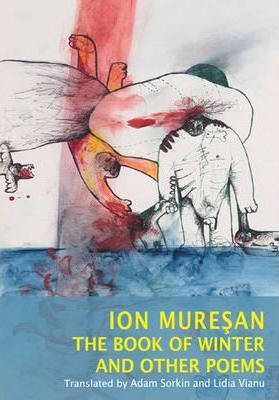
Categorii: Neclasificate
Limba: Engleza
Data publicării: 2011
Editura: University of Plymouth Press
Tip copertă: Hardcover
Nr Pag: 128

There is at once an enigmatic and original character to the poetic language of Ion Muresan who concerns himself through this anthology with the political nature of Romanian poetry. Muresan's poetry draws upon Transylvanian legends to address the communist manipulation and monopoly of truth by regaining individual thoughts through his poetry which reflects what it is to be Romanian. Muresan is not just self-conscious but also self-mocking and playful about the challenges of his writing. In a riddling phrase that serves as the title of the poem I'm about to quote from (and of the book it appears in, Muresan's second collection), the poetic persona announces that he is working on the poem that cannot be understood and immediately specifies, It s a shiny black rock polished, beautiful, sensual, revelatory of an unyielding quality, elemental, and a bit frightening. Another poem, 'The Poem on Poetry' from Muresan's first book, begins, All my life I have gathered rags to make a scarecrow; however, this five-line confession concludes, Yet now that it's ready, night after night I turn off the light and simply suspecting it's there, / I start to howl in terror. Perhaps the fear derives, and cannot be separated, from the essential reality, poetry's intrinsic nature. 'The Poem That Cannot Be Understood' ends with a more hopeful (possibly illusory) vision of poetry's capacity to move and change its readers: getting old, nearly hunchbacked,... / I stand in line, behind hundreds and hundreds of people, / in order to see, at least at the end of my days, / the poem that heals, / the poem that cannot be understood. The Book of Winter can be said to foreshadow the harsh period during the 1980s, when such famous incidents occurred (in the way I ve heard the anecdote) as the time a Romanian audience, huddled in their winter coats, hats, scarves, and gloves in an unheated theatre for a performance of Shakespeare s Richard III, applauded the opening line, Now is the winter of our discontent,... choosing to hear it as a veiled political barb. In fact, Muresan's poetry, for the most part, neither glares forth with the pop-culture-savvy verbal gamesmanship of Romania's post-modernism-before-post-communism (the most prominent example is the poet and prose writer Mircea Cartarescu) nor positions itself as the repository of parabolic, black-humour, between-the-lines hints at resistance to censorship and the party-state, such as was achieved in referential camouflage by a number of poets popular both in Romania and in the West more for their implicit dissident politics than for their otherwise strong, personally moving and/or witty poetry (e.g., Ana Blandiana, Mircea Dinescu, or Marin Sorescu). However, a few of Muresan's allusions in the poems certainly would have been read as subversive, such as the parodic language of civil obedience in happily respecting traffic lights or the inclusion of an otherwise unidentified Elena twice, a name that, whether intended by the author or not, Romanian readers would almost automatically have associated with dictator Nicolae Ceausescu's reviled wife. Winter suggests a frozen season as dangerous as a poetic state, a deathly condition. Poetry itself is an affliction I just carry my disease: this poem / like a sour apple in my mouth albeit a saving affliction. But if winter is ultimately associated with death, both poetry and madness are possible means of transcendence, and there is something religious about them. Without them, as Muresan warns in the book's opening poem, we shall not be pardoned.